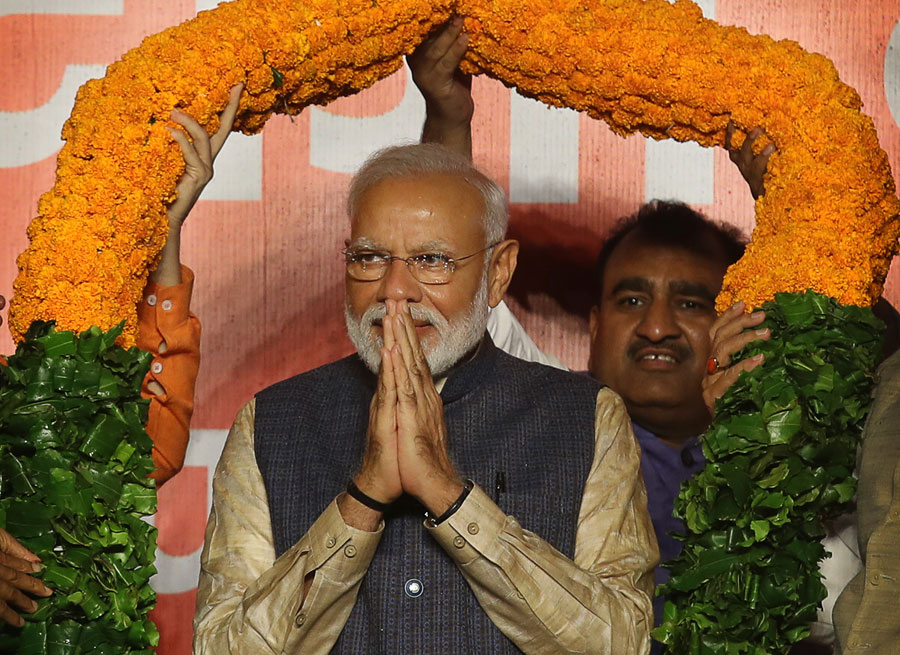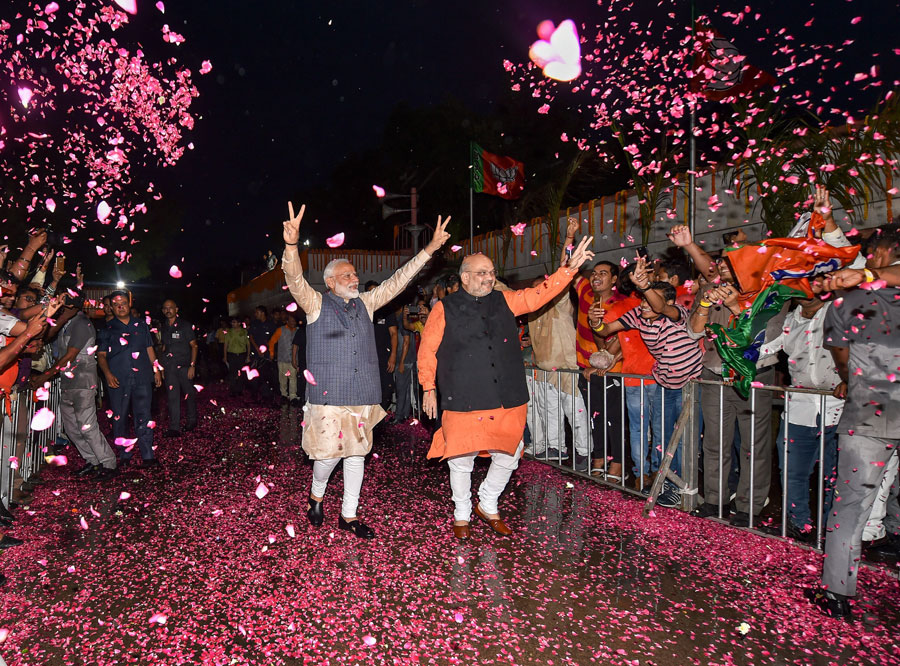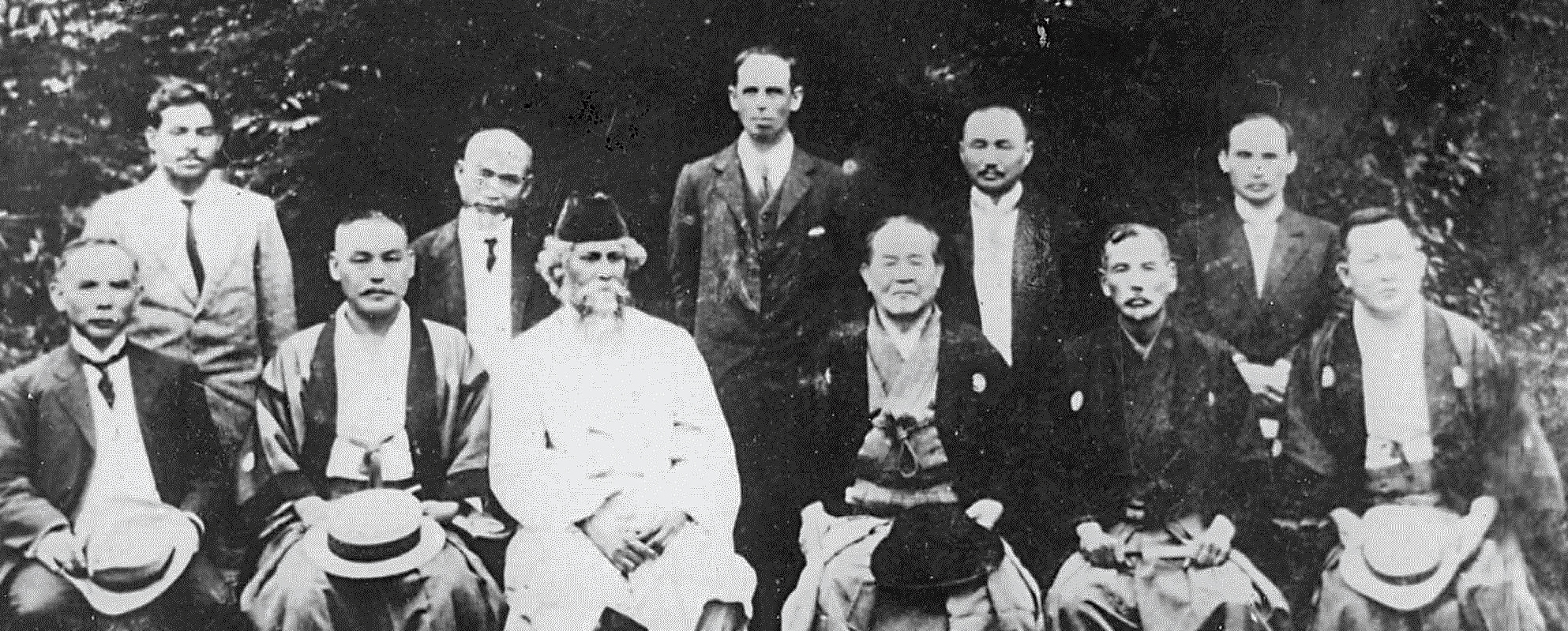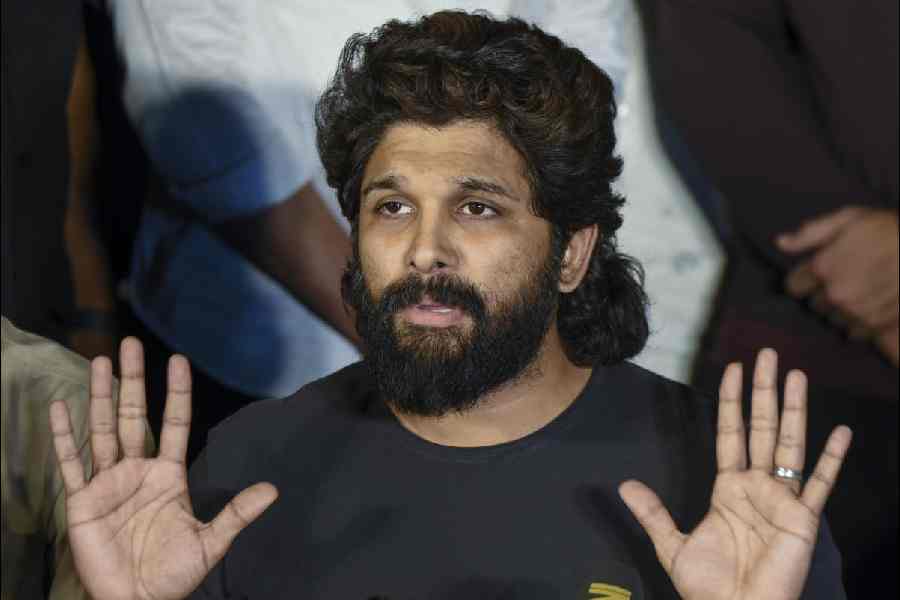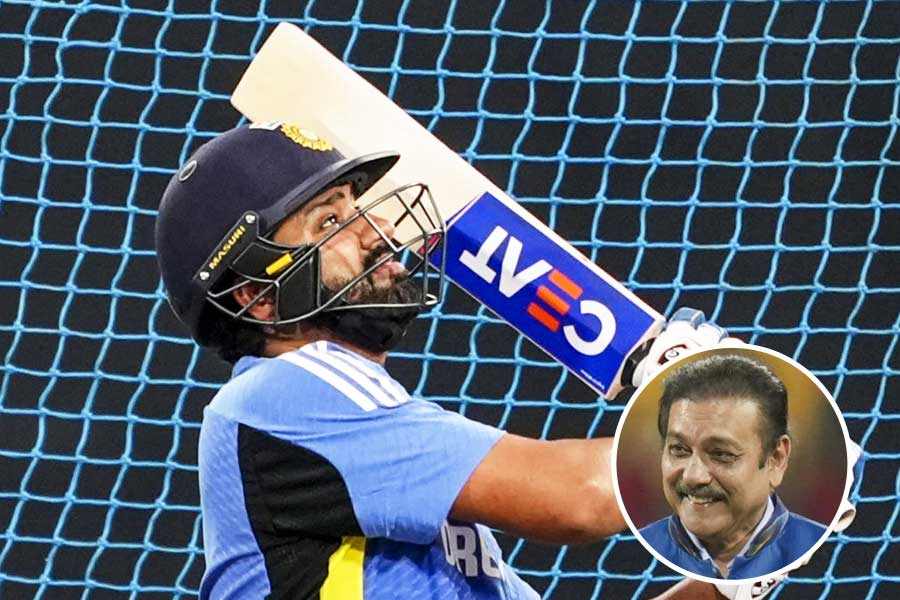As expected, the Bharatiya Janata Party has returned to power with an enhanced mandate, winning 303 seats. The Congress fared poorly; again, as expected. Rahul Gandhi, the Congress president, did all that he could to halt the Modi juggernaut. He couldn’t have worked harder. Yet he lost badly, losing even his own pocket borough, Amethi. This makes the emerging situation all the more worrisome for those who long for a change from the present hypernationalist spin imparted to Indian politics.
The outcome speaks less of Modi’s invincibility than of the political infantility of the Opposition parties. I wish Rahul Gandhi had read Plato’s Republic. He would have realized then that the political world is an artificially and arbitrarily constructed entity in which reality is overshadowed by a contrived world of perceptions and illusions. The political shadow-play, as Plato depicts it allegorically, takes place in the un-real setting of the ‘Cave’ in which citizens live as spectators, chained to their particular stations, viewing images projected for them. What they see, and how they understand what they see, are decided by the puppeteers who project these images. They cannot converse with each other on the meaning or merit of what they are made to watch. To them, the shadow-play is the only reality. They resent attempts to make them aware of the truth about their predicament.
Narendra Modi is a past master in the art of generating images and hypnotic illusions to modulate public sentiments to his advantage. He has shifted Indian politics from ‘public opinion’ to ‘people’s sentiments’. Rahul Gandhi kept attacking Modi on the falsehoods he was reeling off in his addresses to the adoring masses, not realizing that in the shadowy world of realpolitik the distinction between truth and falsehood is irrelevant. If anything, the masses prefer falsehood, if conditions conducive to it are created, as is the case now.
Consider this. Modi won the general election by projecting himself as the superhero who alone can put Pakistan in its place. The terrorist attack in Pulwama and the Indian retaliation in Balakot were used effectively to whip up hypernationalist euphoria. Those who demanded evidence for the Balakot attack were denounced as anti-national. The point of all this did not sink into either the Opposition leaders or the public at large. Truth is irrelevant in such situations; for it is not conceived as a textbook event for historiography, but as an electoral theatre where illusions, impressions and sentiments reign supreme.
Neither the Congress nor the two-dozen-odd Opposition parties understood the game plan. Or, if they did, they didn’t dare tell the voters that these were electoral hypes meant to shut their eyes to the harsh realities afflicting them. By all counts, the people of India have lost, and lost significantly, in the last five years. The Modi-led National Democratic Alliance government has failed on every front that impacts people’s welfare. Every promise made in 2014 was broken. The nerves of our shared life are strained as never before. But none of these concerns figured in this election. A set of manufactured images, manipulated impressions and spiked-up excitements did.
In spite of the setback he has suffered, Rahul Gandhi is certainly the most improved leader in Indian politics. This is authenticated by the severity of the attack on him. But he still remains naive politically. He believes in the essence of our constitutional democracy. He has a caring heart. He is people-oriented. But all these attributes were lost on the voters. Why? The answer to this question involves the tension between politics and morality; or, as Plato said, between politics and philosophy. Can a good man be a successful politician? Does the politician who promises ‘good governance’ have to be devious and brutal to be effective in politics? But, if he is indeed a devious person, how can he deliver on good governance? This dilemma has come to the fore as never before.
This brings us, yet again, to the famous ‘Modi-hug’ with which Rahul Gandhi ‘rattled’ Parliament. Rahul improvised a contrast between Modi’s ‘anger’ and his ‘geniality’. It was a significant gesture. But it was perceived as gross impropriety. The message, alas, was lost on Rahul Gandhi. Ideals and values, to be effective, or even legitimate, in the political sphere need a context that is favourable to them. To see this properly, consider Rabindranath Tagore’s stand as set out in Nationalism. He asserts that nationalism, if it means hostility to any segment of humanity, is unacceptable to him. He was understood and appreciated then. If Tagore were to say the same thing today, he would be damned as anti-national.
This highlights the need to educate Indian society about politics. But education is not a priority for the political elite. The future of liberal education, its foundation weakened over the recent years, is bound to be gloomier in the days ahead. Liberal education, with its emphasis on rational and independent thinking, is assumed to be disruptive; and for good reasons too. It is indeed disruptive to the illusions-manufacturing process on which politics is predicated today. Elections are won on illusions. Those who monopolize the means for generating and marketing them will carry the day so long as the masses remain uncritical consumers.
There are, all the same, signs of hope. Take Kerala, for example. How has this tiny state bucked the trend? The BJP, for all its determined bid to break in, has drawn a blank there. Rahul Gandhi and the motley crowd of Modi-resisters need to pay heed to this. Keralites, given their legacy of educational and religious renaissance, can see through illusions and ulterior strategies. Besides, they appreciate the ideals and values that Rahul Gandhi espouses. That the Congress-led alliance swept the polls in Kerala can be largely attributed to Rahul’s entry on its electoral landscape. The Left coalition had read the signs and had been rattled as a result.
No significant change in the present trends is feasible without equipping the citizens of India with whatever it takes to see through the smokescreen of illusions and manipulations. It is erroneous to read the electoral result as a Modi wave. It is, rather, the high tide of magical illusions. It worked wonders where the masses are vulnerable to manipulations. It is a constitutional duty, as per Article 51A, to counter magic with logic. It has to be done through liberal education and, beyond that, through the spread of mass awareness to equip individuals to see through the propaganda that is being generated.

